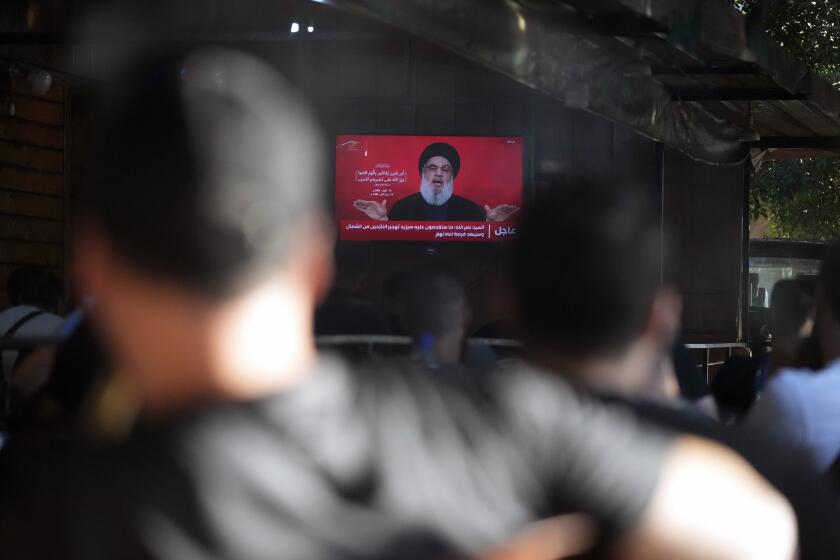Homeland Security Chief Says Ports Deal Was Safer Bet
The U.S. missed an opportunity to make its shores safer when it drove away a United Arab Emirates company poised to operate cargo terminals at several American seaports, Homeland Security Secretary Michael Chertoff said Thursday.
In a speech to the Council on Foreign Relations, Chertoff said the international shipping firm Dubai Ports World could have helped implement stronger security at many ports where the U.S. has limited influence.
“We could [have] actually built in some additional assurances, which would have given us more security in the wake of the deal than we had before the deal,” Chertoff said. “The oddity of this -- the irony of this -- is that had the deal gone forward, we would have had greater ability to impose a security regime worldwide on the company than we have now.”
Dubai Ports World, the third-largest ports company, was to take over operations at port terminals in six U.S. cities when it purchased Peninsular & Oriental Steam Navigation Co., a British firm. The Bush administration defended the deal, but under pressure from Congress, the company said this month that it would sell its U.S. businesses to an American buyer.
The decision followed a month of attacks by critics who were concerned about possible security risks to ports, saying the facilities would be run by a state-owned company from an Arab country with a shaky record on terrorism.
Chertoff, however, said Dubai Ports World had a good track record with U.S. authorities and had long been trusted to help move U.S. military materiel and personnel.
Meanwhile, the Associated Press has learned that the Bush administration is hiring a Hong Kong conglomerate to help detect nuclear material in cargo that passes through the Bahamas on its way to the United States and elsewhere.
The administration acknowledged that the no-bid contract with Hutchison Whampoa Ltd. represented the first time a foreign company would be involved in running a sophisticated U.S. radiation detector at an overseas port without U.S. customs agents present.
And the administration is negotiating a second no-bid contract for a Philippine company to install radiation detectors at that country’s largest port, according to documents obtained by the Associated Press. The U.S. said the Manila company was not being paid to operate the radiation monitors once they were installed.
More to Read
Sign up for Essential California
The most important California stories and recommendations in your inbox every morning.
You may occasionally receive promotional content from the Los Angeles Times.










